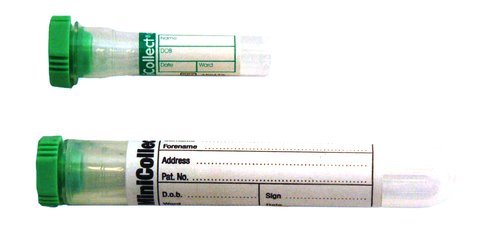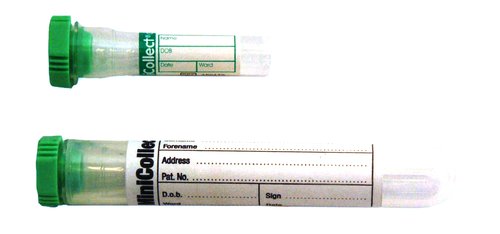Acylcarnitines
Chemical Pathology
Notes
Acylcarnitines are biological intermediates that play a vital role in energy production, particularly during times of prolonged fasting and increased calorific requirement.
Acylcarnitine measurement is used in the diagnosis and monitoring of fatty acid oxidation disorders (FAOD). The most common FAOD is medium chain acyl CoA dehydrogenase deficiency (MCADD), which is part of the newborn screening programme.
Acylcarnitine analysis can detect around 24 disorders. Each disorder is associated with a specific enzyme defect in the fatty acid metabolic pathway and affects utilization of dietary and stored fat. As such, FAOD can cause recurrent episodes of hypoglycemia. Clinical findings may include lethargy, hypotonia, failure to thrive, persistent vomiting, hepatomegaly, rhabdomyolysis and Reye syndrome-like episodes.
Measurement is also performed for monitoring carnitine status in patients on a ketogenic diet.
Sample requirements
Bloodspots
Recommended sample type for investigation of hypoglycaemia and first line screening for FAOD in neonates and infants.
Capillary blood is collected by natural flow from the neonate heel and applied to four printed circles on the standard newborn screening bloodspot card.
Spots can also be made in laboratory using blood taken into a minicollect lithium heparin tube.

Plasma
Recommended sample type for investigation of myopathy/rhabdomyolysis in adults and for ketogenic diet monitoring.
For neonates/infants a minimum of 0.8mL blood taken into a minicollect lithium heparin tube is required.

For adults and older children take a minimum of 2mL blood taken into a lithium heparin tube

Storage/transport
Send at ambient temperature to the laboratory on same day as sample collection.
Required information
Relevant clinical details including details of clinical presentation.
Turnaround times
Samples are sent for analysis to the North Bristol NHS Trust with a result expected within 4 weeks.
Reference ranges
Bloodspot free carnitine: 8.8 - 41.8 umol/L
Plasma free carnitine: 15 -53 umol/L
Results are interpreted in clinical context and individual interpretation is provided on reports.
Further information
To learn more about acylcarnitines visit National Metabolic Biochemistry Network
Page last updated: 14/07/2023